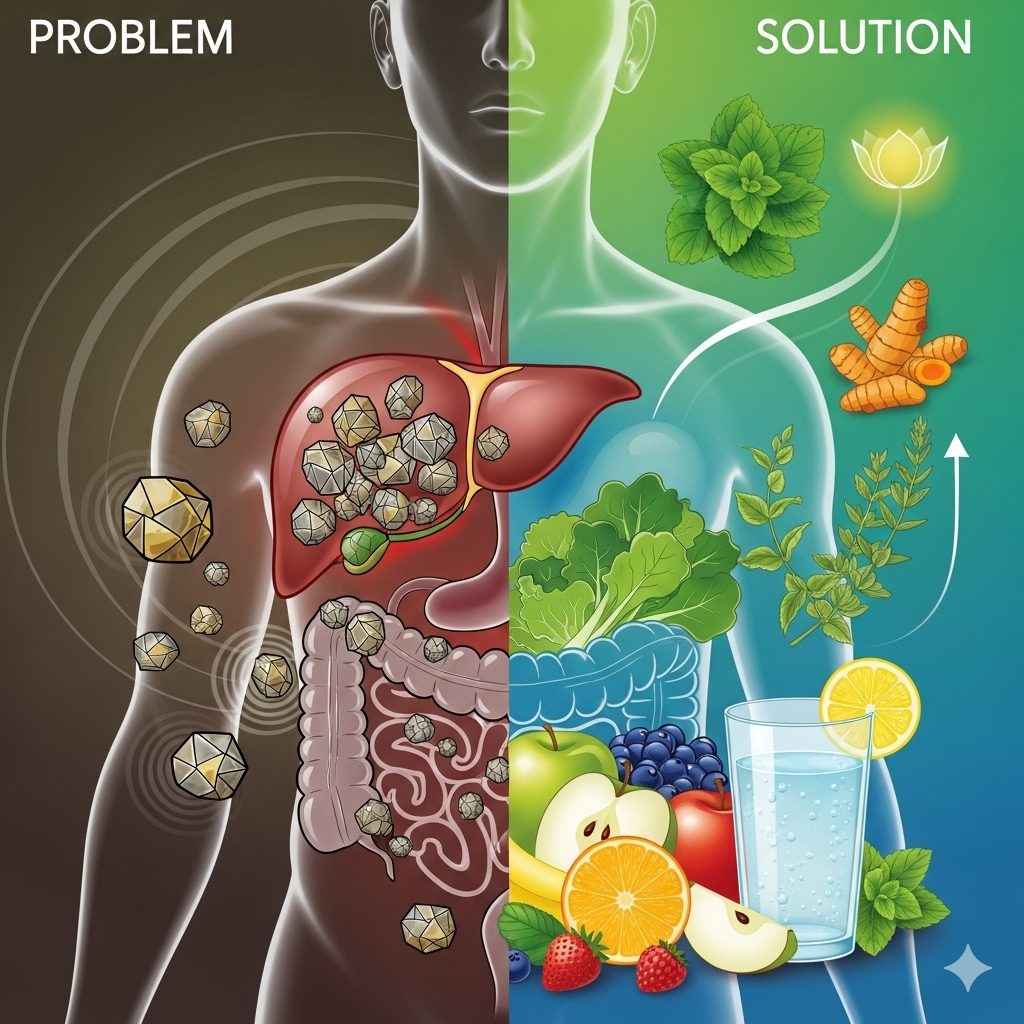How to Prevent Gallstones? Causes, Symptoms, and Treatment

Gallstones are a common health issue that can affect people of all ages. Studies show that women are three times more likely to develop gallstones compared to men. While some gallstones remain silent without causing noticeable problems, in certain cases they can lead to severe abdominal pain and gallbladder inflammation if left untreated.
- How to Prevent Gallstones? Causes, Symptoms, and Treatment
- What Are Gallstones?
- What is the Gallbladder?
- How Are Gallstones Diagnosed?
- Gallbladder Surgery
- How to Prevent Gallstones?
- Final Thoughts
In this article, you’ll learn what gallstones are, symptoms to watch for, diagnostic methods, treatment options, and effective prevention tips to protect your health.

What Are Gallstones?
Gallstones are solid particles that form inside the gallbladder when bile components such as cholesterol, bile salts, or waste products crystallize. They can remain unnoticed for years, but once they obstruct bile ducts, painful and potentially serious complications may occur.
This condition is medically known as cholelithiasis.
What is the Gallbladder?
The gallbladder is a small, pear-shaped organ located under the liver, measuring about 7–10 cm in length and 5 cm in width. Its main role is to store and release bile, a digestive fluid produced by the liver. Bile helps break down dietary fats and supports the absorption of fat-soluble vitamins such as A, D, E, and K.
When gallstones form inside the gallbladder and block the bile ducts, it can cause sudden and intense abdominal pain. If the blockage continues, inflammation develops, leading to cholecystitis (gallbladder inflammation), often accompanied by fever and severe pain.
How Are Gallstones Diagnosed?
Doctors may use several tests to diagnose gallstones, including:
- Blood tests (to check liver and gallbladder function)
- Ultrasound (the most common imaging method)
- Magnetic Resonance Cholangiopancreatography (MRCP)
- CT Scan
Gallbladder Surgery
When gallstones cause frequent or severe symptoms, doctors may recommend gallbladder removal surgery, known as cholecystectomy.
This procedure usually takes about 1–2 hours, during which the gallbladder is surgically removed. Patients can typically return to normal activities within a few days.
How to Prevent Gallstones?
While not all gallstones can be prevented, adopting a healthy lifestyle can significantly reduce the risk. Here are some practical tips:
- Eat a fiber-rich diet with plenty of fruits, vegetables, and whole grains.
- Maintain a healthy weight and avoid obesity.
- Do not skip meals – try to eat at regular times every day.
- Avoid rapid weight loss, as it can increase the risk of gallstone formation.
Final Thoughts
Gallstones may be silent for years but can suddenly cause serious discomfort and complications. By following a balanced diet, maintaining a healthy lifestyle, and having regular medical check-ups, you can lower your risk and protect your digestive health.





